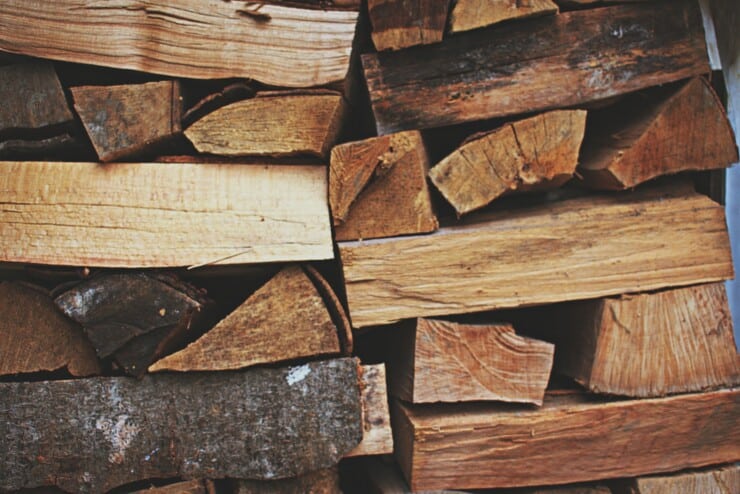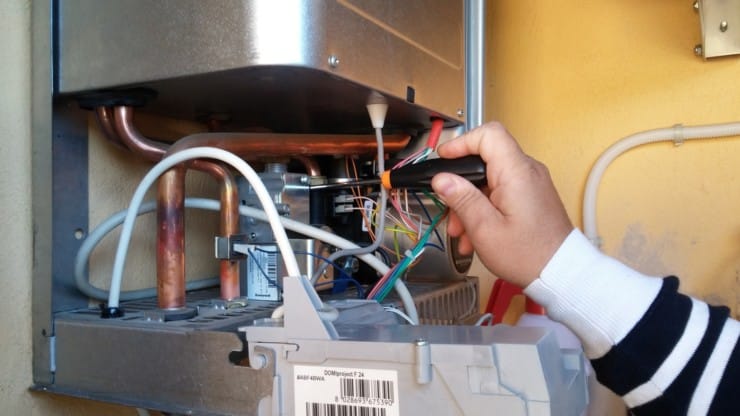Why Is There a Strange Wood Smell in My House?
The comforting aroma of aged timber burning in a fireplace creates a distinct feeling of comfort and intimacy in households.
However, it’s one thing to smell burning wood but completely another when you notice a strange musty wood smell that just seems to come from nowhere.
This strange wood smell can be a sign of some problems in your home that may have gone unnoticed.
Here are the possible reasons for this.
What’s the Reason Behind the Strange Wood Smell in My House?

A strange wood smell in houses can stem from a variety of reasons. Let us explore some of the primary causes that may result in this issue.
1. Mildew and Mold
The presence of mold and mildew in your home may, strangely enough, emit an unpleasant odor.
Whether it is in the basement, kitchen, or bathroom, mold and mildew build-up can cause a wood-like, pungent fragrance, or a wood sticky smell.
Mold and mildew result due to the presence of water, fluid, and moisture in certain areas of your home.
While the scent of mold and mildew may seem wood and pleasant, it can still be injurious to your health and hygiene.
2. Furnace Leakage
Another source of a wood scent circulating your home could be a leaking furnace.
In most cases, the heat exchanger in the furnace pumps hot air via the air ducts. If it spills, it will emit a pleasant, formaldehyde-like smell.
However, unlike the other reasons, this wood smell is out of the ordinary, potentially signifying a threat that must be addressed right away.
Carbon monoxide is a toxic gas that may leak from heat exchangers.
While carbon monoxide does not have a distinct smell, it can occasionally give off a pleasant wood-like odor.
If your heat exchanger starts to give off a wood smell, shut it down immediately and get it looked at by a professional.
3. Insect Infestation
It may sound strange, but an insect infestation can also result in a wood smell in your home. In general, bugs or insects that can generate wood oil emit a wood scent.
A wood odor can indicate a bug infestation, such as ants, bedbugs, cockroaches, etc.
If you come home after a vacation and detect a wood smell, be sure to consider a possible insect infestation.
4. Porous Wood
A woody smell in your home can be due to a variety of causes, but one of the most common is porous wood absorbing moisture.
Over time, wood furniture and flooring can become weak and begin to rot, creating the perfect environment for mold and mildew to grow.
In addition, wood that is not properly sealed can absorb moisture from the air, leading to the development of mold spores.
If you notice a woody smell in your home, it is important to investigate the source.
Once you have identified the cause, you can take steps to eliminate the odor and prevent it from returning in the future.
5. Wood Stove
If you notice a wood smell in your house, it may be due to rising exhaust gasses from your wood stove.
The smell is most noticeable when the fire is first lit, but it can also be present when the stove is not in use.
The best way to reduce the wood smell is to make sure that the stove is properly vented.
The chimney should be checked regularly to ensure that it is clear of blockages, and the stove should be operated at the correct temperature.
By taking these measures, you can help to reduce the wood smell in your house and keep your family safe from harmful fumes.
6. Lack of Air Circulation
This is a rare occurrence, but a wood smell in your home can result from reduced air circulation.
This is typically the case when you come home after a vacation and encounter a faint wood smell diffused in your home.
When you go on vacation, your house does not receive enough ventilation and air circulation.
Consequently, you may notice a wood odor when you return home. In general, this odor does not linger around for long.
7. Low Air Pressure
If your house has a lower air pressure as compared to the outside, it may lead to the emission of a wood smoke odor in your home.
8. Additional Chemicals and Gases
We use many electrical devices, all of which contain an array of chemicals and gases.
Wood smells may result due to such gas or chemical leaks. Cyanide gas, for example, might leave your home smelling like a delicious almond.
FAQs
How can you get rid of the wood smell from your home?
If you know the root cause of the issue, you can direct your eradication efforts accordingly to get rid of the smell.
What to do if the smell is due to molds?
If the wood odor is the result of mold and mildew build-up, you must clean them to eliminate the smell.
Clean any areas that are exposed to persistent wetness like the kitchen, bathroom, and basement, for example.
Cleaning carpets, rugs, mats, and other such items can also be beneficial.
How to fix refrigerator and air conditioner leaks?
To address a refrigerant or air conditioner leak, it is best to seek expert assistance.
How to deal with a furnace leak?
If you suspect a furnace leak, get professional assistance right away and evacuate your home because carbon monoxide leakages can be very dangerous.
How to get rid of pest infestation?
In most cases, bed insect infestations can be resolved by washing the bedsheets in warm water.
Furthermore, you can use vinegar or commercial remedies to repel mosquitoes or bugs.
If you suspect a massive infestation, however, seek professional assistance.
Can I fix the ventilation problem?
You can remedy a ventilation problem by ensuring that the house has adequate ventilation.
Open the house’s doors and windows and switch on the fans to allow air circulation.
I am experiencing chemical odors. What to do?
If you notice other gasses or substances that have a wood fragrance in your home, you should seek professional help because you may not be aware of how hazardous the fumes or chemicals are.
Final Thoughts
Wood smells are not always pleasant, especially when there is an unusual wood odor in your home.
By taking the first step of identifying the cause of this issue, you’re one step closer to eliminating this unwanted smell.
You can also take note of the lessons you’ve learned in this situation, so can avoid having the same problem of strange wood smell again in the future.







